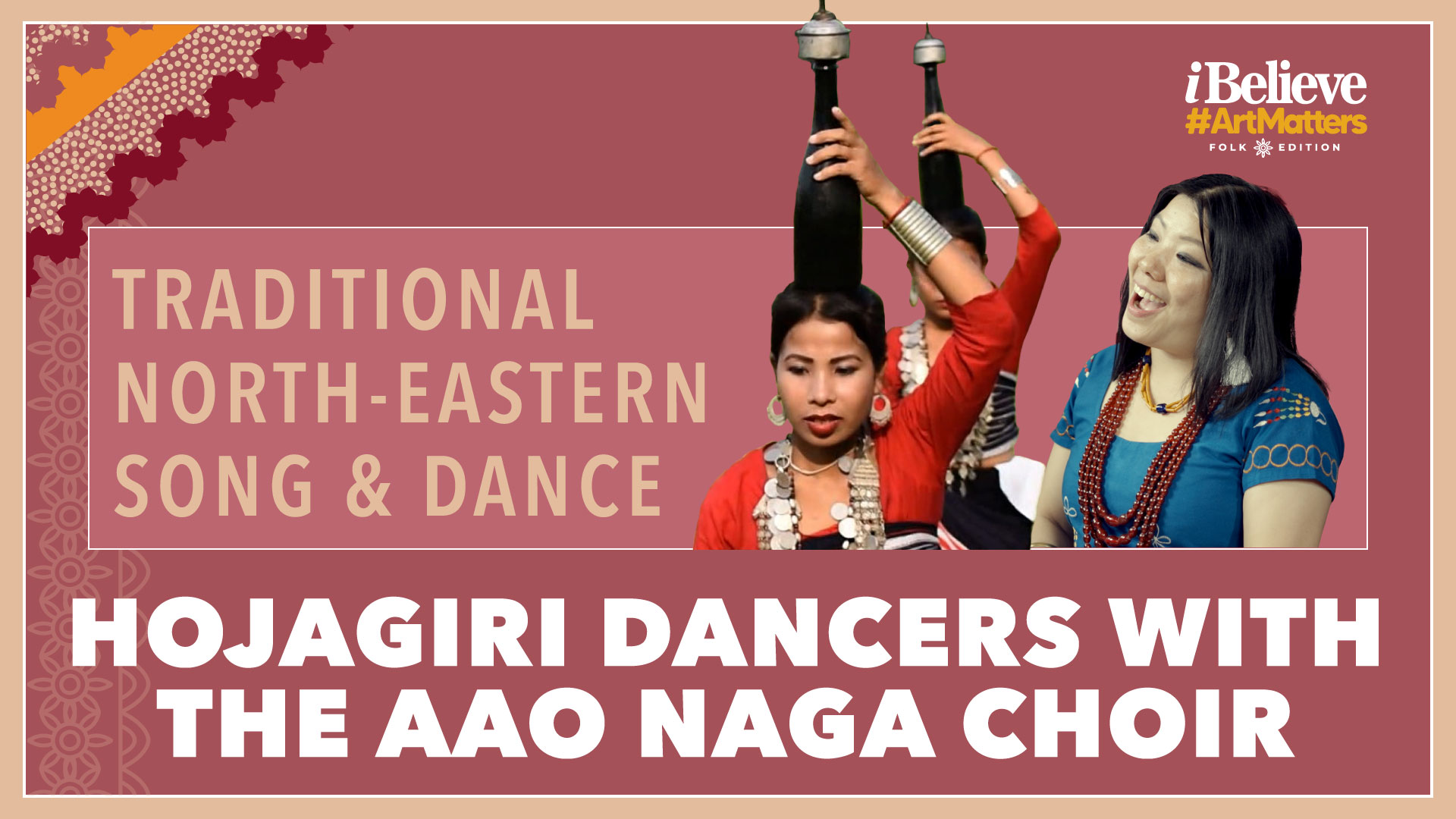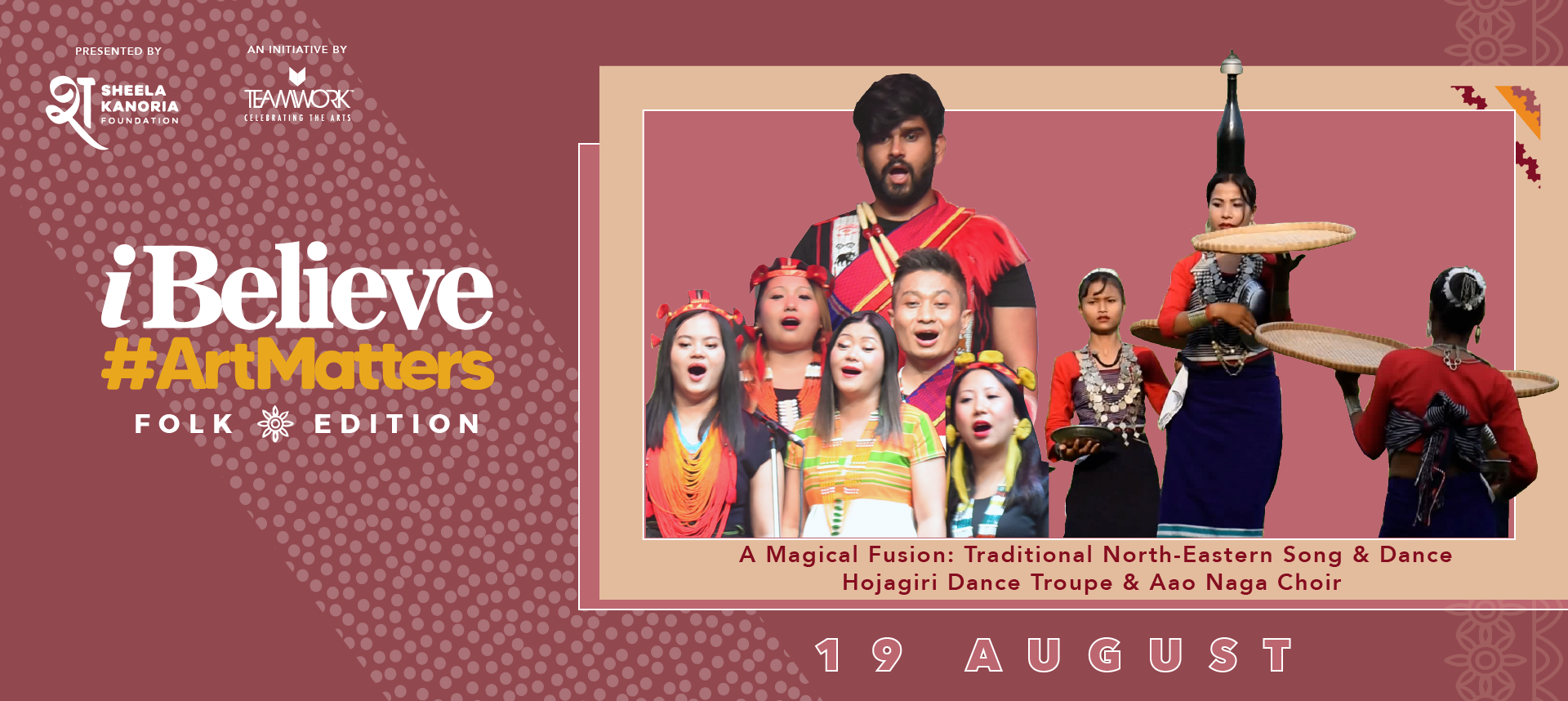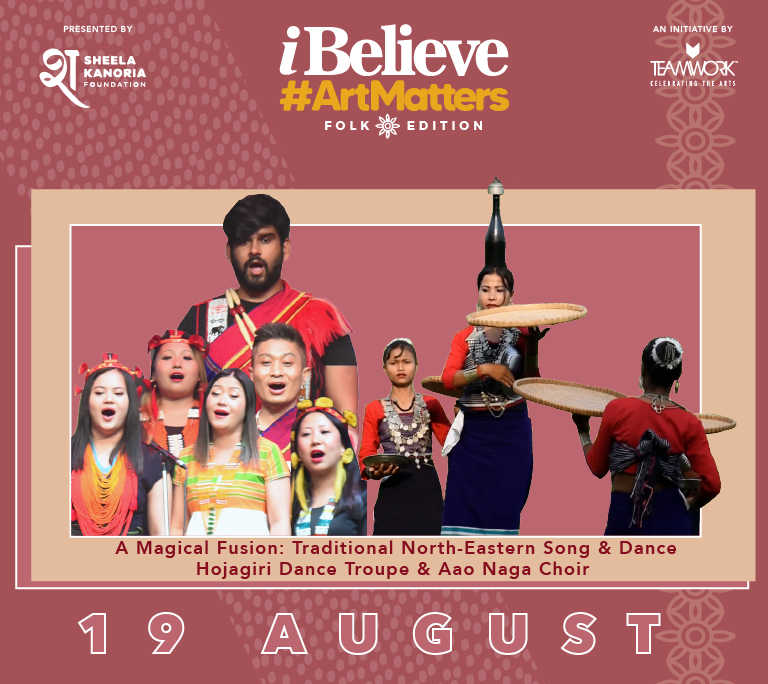A Magical Fusion: Traditional North-Eastern Song & Dance
Performed by Aao Naga Choir with Hojagiri Dancers

Concept
In this exceptional performance, the beautiful voices of the Ao Naga Choir will sing a traditional folk song ‘Mejensanger Naro’ and this meaningful musical treat will be accompanied by the remarkable movements of the Hojagiri Dancers. Their collaboration will bring about a lovely fusion of an evocative song with the beauty of movements and gestures.About Artistes
Performed by Aao Naga Choir with Hojagiri Dancers
Ao Naga Choir & Hojagiri DancersFormed in 2008, the exemplary Ao Naga Choir is composed of university students and young working professionals of various Naga tribes from the region of Nagaland. Their ever expanding and impressively diverse repertoire includes spirituals, gospel songs, hymns, choruses from opera, operetta and musicals and Ao Naga Songs. The Choir has joined as an Affiliate Member of the Royal School of Church Music, London, and is a member of the International Federation of Choral Music. They are also empanelled with the Indian Council for Cultural Relations (ICCR). The performers are the recipient of the ‘Angel of Peace Award’, presented at the World Peace Choral Festival for promoting culture and peace through choral music. The Aao Naga Choir has bedazzled audiences with their performances at the stages of India, Europe, Salzburg, Sri Lanka, South Africa and many other countries! For ‘I Believe Art Matters Folk Edition’, the Choir is collaborating with The Gachirampara Hojagiri Cultural Troupe.
The troupe carries forth the legacy of the famous Hojagiri Musamung (dance), a celebrated indigenious dance form of Tripura, renowned for the strength of its performers and their rhythmic moves. Mastered over years, the dance is performed by members of the Bru (Reang) community, one of the 19 tribes of Tripura. As a marker of the state’s cultural pride, Hojagiri continues to be performed during India’s Republic Day celebrations and also during other popular national and international programmes. It is also an integral part of some religious festivals, such as the Maikhlummo Puja, celebrated to worship the Goddess of Food & Grain during the months of September and October.



